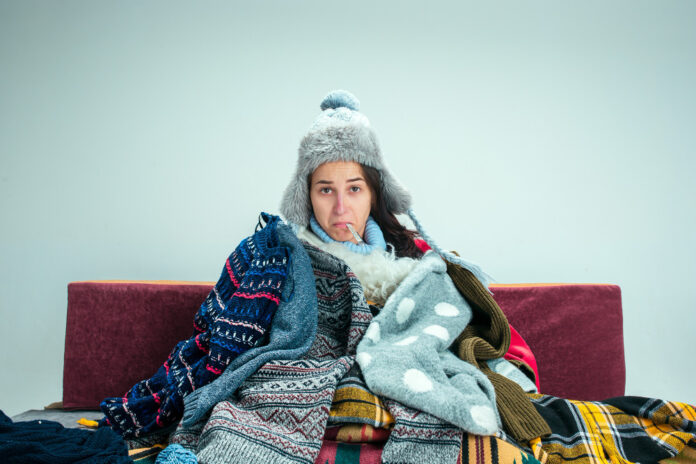Hormonal differences, blood vessel function, and body composition explained by medical expert
A doctor has shed light on why women often report feeling colder than men, attributing this difference to various biological factors. Dr Sermed Mezher, known as ‘Dr. Seemed Mezher explained’ on social media, and elaborated on these reasons in response to a video comparing men’s and women’s preferences for shower temperatures.
Dr. Mezher noted that women typically have less muscle mass than men, leading to reduced heat generation. Muscle mass plays a crucial role in maintaining body warmth, and since women generally have less of it, they are more prone to feeling cold. Additionally, hormonal differences contribute significantly. Women have a slightly higher core body temperature compared to men, which helps keep their internal organs warm but makes them more sensitive to cold temperatures. This sensitivity is particularly noticeable during ovulation and the later stages of the menstrual cycle when hormonal fluctuations are at their peak.
Dr Mezher explained, “If you are a woman who likes to crank up the shower heating bill, then you are not alone and there is a reason for it. Women naturally have a fractionally higher core body temperature compared to men, which helps keep those inner organs toasty but can lead to cold sensitivity that can worsen throughout the cycle.”
Body composition also plays a role. On average, women have a higher percentage of body fat compared to men, ranging from six to eleven per cent more. While body fat can provide insulation, it doesn’t generate heat like muscle does. Men, on the other hand, have more skeletal muscle, which is thermogenic, especially given their higher average exercise tolerance.
Dr. Mezher also highlighted a common condition that exacerbates this issue: Raynaud’s phenomenon. Women are five times more likely to suffer from this condition, which causes blood vessels in the hands and feet to spasm, reducing blood flow and leading to a feeling of coldness. He stated, “We also know that women are five times more likely to suffer from Raynaud’s phenomenon, which can cause spasms of the blood vessels in the hands and feet.”
Hormones further complicate matters. Estrogen, a primarily female hormone, thickens the blood, making it more difficult to circulate efficiently to the extremities. This results in women having, on average, hands and feet that are three degrees colder than men’s. Dr. Mezher concluded, “But even without this, women are on average three degrees colder in their hands and feet due to estrogen thickening the blood, making it more difficult to get there.”
Analysis
Political
From a political perspective, the understanding of why women feel colder than men can influence workplace policies and regulations. Employers might consider adjusting office temperatures to accommodate these differences, potentially leading to improved comfort and productivity. Politicians advocating for gender equality could leverage this information to promote workplace inclusivity and better health standards for women.
Social
Socially, this information can change how we perceive and address gender differences in daily life. It highlights the importance of understanding and accommodating the unique needs of different genders. Public awareness campaigns can educate people on why women might prefer warmer environments, reducing the stigma or misunderstanding around these preferences. This can foster a more empathetic and considerate society.
Racial
The racial aspect of this issue is less direct but still relevant. Understanding biological differences, including how they might vary across different racial and ethnic groups, can lead to more tailored healthcare and public health initiatives. Research into how hormonal and physiological factors influence different populations can improve health outcomes and ensure that medical advice is inclusive and effective for all demographics.
Gender
Gender-specific health issues, such as the reasons women feel colder, underscore the need for tailored medical research and healthcare practices. Recognizing these differences can lead to better diagnostic tools and treatments that consider gender-specific needs. This approach promotes gender equality in healthcare, ensuring that both men and women receive the care and attention they require based on their unique physiological traits.
Economic
Economically, the understanding of gender-specific health issues can impact industries such as clothing and home heating solutions. Companies can develop products that cater to women’s needs, such as warmer office clothing or more efficient personal heating devices. This can open new market opportunities and drive innovation in product development. Additionally, workplaces that maintain optimal temperatures for all employees might see increased productivity and reduced absenteeism, positively impacting the overall economy.
